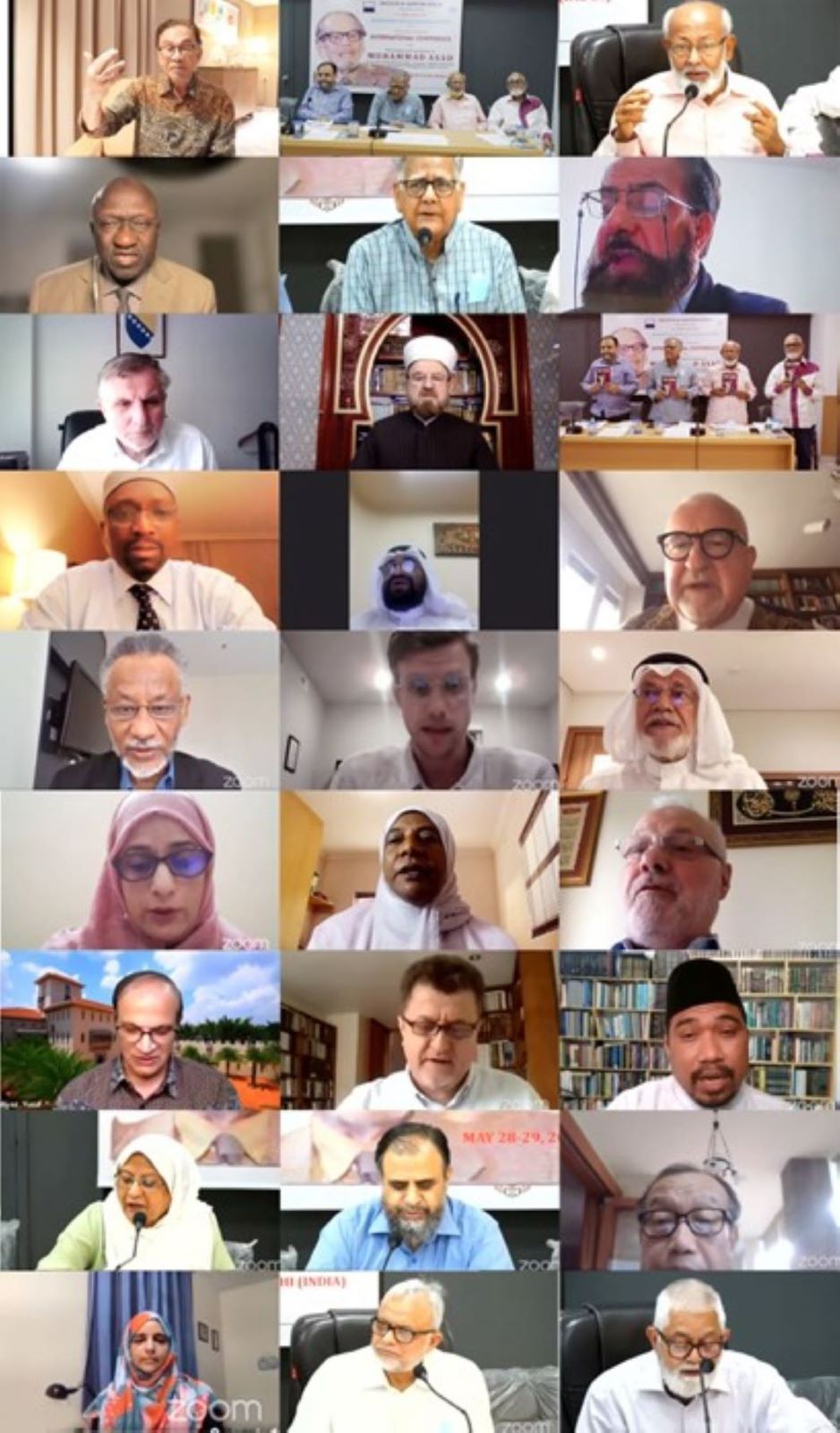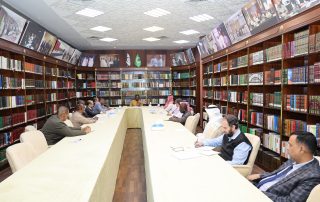
His Excellency the Secretary General of the International Islamic Fiqh Academy (IIFA), Prof. Koutoub Moustapha Sano, participated in the virtual international conference on the “Personality and contribution of Muhammad Asad as an international journalist, political theorist, Mufassir, and religious scholar of the 20th century” organized by the Institute of Objective Studies, New Delhi, India, in association with The International Institute of Islamic Thought in the United States of America on 27-28 Shawwal 1443H corresponding to 28-29 May 2022G.
The conference included five technical sessions, in addition to the opening and closing sessions, which were attended by a large number of scholars and students of Islamic studies from around the world. Many researchers participated in the conference with local and international research papers and presented their papers that dealt with almost all aspects of Muhammad Asad’s life and his contributions to Islamic thought. Significantly, the deliberations in the conference were made upon Muhammad Asad’s Personality, orientation and Thought; his life and emergence as a linguist, theorist and journalist; his understanding of Religions and contribution to Islamic literature and conversion; his responses to western political thoughts and its encounters with the East; and his perspective about Political reconstruction in the 20th century.
In his intervention in the concluding technical session of the conference during the second day, His Excellency spoke about “Muhammad Asad’s ideas and their contemporary relevance,” noting that Dr. Asad was indeed a great scholar and thinker who contributed greatly to Islamic thought and relations between Muslims and the West in many respects, as he wrote several volumes on different aspects of Islam. His various works have greatly influenced Islamic thought within Muslim countries and Muslim communities in the West in general and in Europe in particular.
His Excellency added: “One of Asad’s most important works is his translation of the Qur’an into English, where he used new tools for interpretation, especially his social, cultural and intellectual background through textual analysis. The “Message of Qur’an” was his greatest book, as he compiled his life experiences and the knowledge that he acquired and accumulated over the years from his study of primary and secondary Islamic sources, and he proceeded to translate that message into English. To this day he is the only European Muslim scholar who has translated and explained the Qur’an, so that non-Arabic speakers could understand it and conceive its meanings. He translated the Qur’an to bring its depth and wisdom to the hearts and minds of people far from the preconceptions that pervaded the West from the time of the Crusades to the colonial period.” Then His Excellency pointed out that among the critical issues that Asad addressed in his work was helping to restore Muslims to the two main sources that were the basis of their spiritual and civilizational renaissance embodied in the Qur’an and Sunnah. Asad criticized the imitation of the bitter and unsuccessful experiences of Muslims in the Middle Ages on the one hand, and the imitation of the West in its social, economic and political concepts on the other. Assad believes that the original response lies in returning to the teachings of the Qur’an and the hadiths of the Prophet.
In conclusion, His Excellency explained that Asad made a critical study of the causes of the decline of Muslims and the forces and problems that haunt them and impede their renaissance. Motivated by the reformer’s zeal, Asad attempted to bridge the gap between tradition and modernity because it is particularly important today for the efforts of ijtihad undertaken by institutions such as the International Islamic Fiqh Academy to present Islam free from the anti-Islam stereotypes that tend to distort Islam and its shining image. We can also benefit greatly from Assad’s work in developing mutually beneficial relations with the West on the basis of respect, and therefore we must focus our efforts on presenting Islam on the basis of moderation, integration, dialogue and peaceful coexistence between religions and races. These values are integral to Islam and are equally integral to the vision and values of the Academy, and in this way, we will be able to defeat extremist ideologies, fanaticism, violence and Islamophobia.
The closing session of the conference was presided by the Chairman of the Institute of Objective Studies, Dr. Muhammad Manzoor Alam, who described the late Muhammad Asad as a reformer who used new tools of ijtihad to develop the Faculty of Mind and Thought. The closing speech was delivered by Prof. Muhammad Afzal Wani, Vice-Chairman of the Institute for Objective Studies, and the conference concluded at the end of the second day by adopting 6 points of resolutions about the thought, life and contributions of the scholar Muhammad Asad.
Read Also
Lastest








